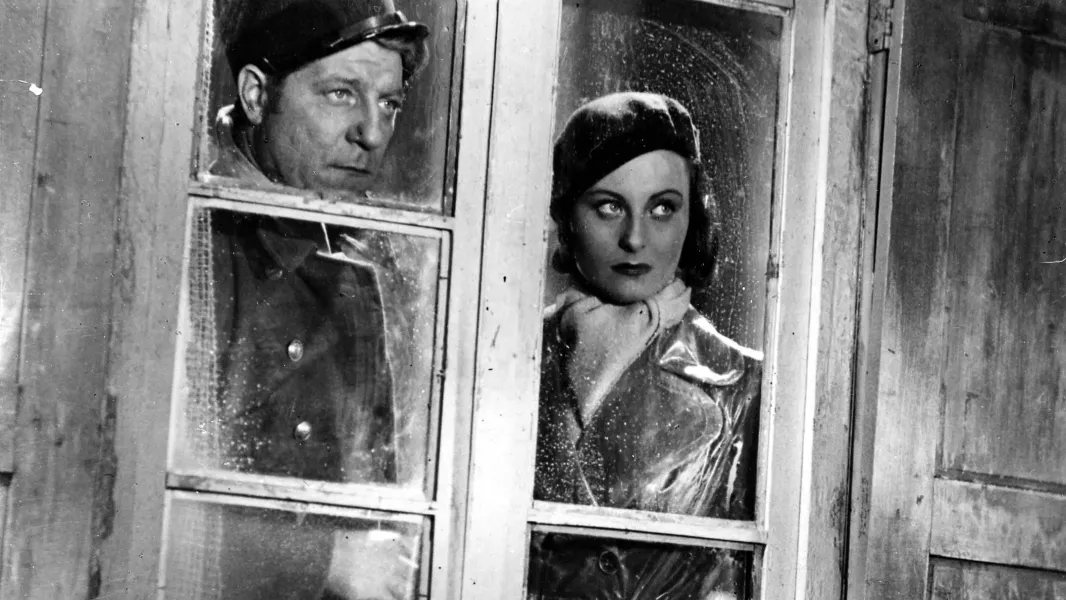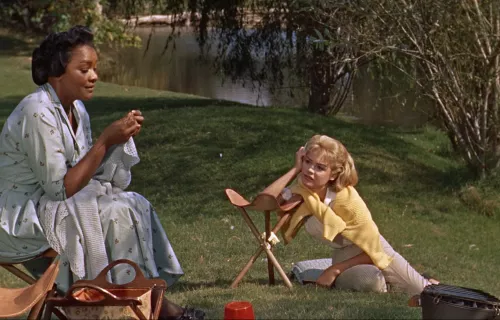
english below
Op een mistige nacht, rijdt legerdeserteur Jean de havenstad Le Havre binnen. Met hoop op een nieuwe start, hoopt Jean een plekje op een schip naar een nieuw leven te veroveren. Intussen doodt hij de tijd in een café, waar hij de 17-jarige Nelly ontmoet. Het meisje is op haar jonge leeftijd al een object van begeerte van verschillende mannen: haar peetvader Zabel, ex-vriendje Maurice en gangster Lucien. Jean valt ook voor haar en geeft haar het zelfvertrouwen om los te komen van de giftige mannen in haar leven. Maar jaloezie en noodlot lijken hun droom om hun oude leven achter zich te laten, in de weg te staan.
Auteur Lucy Sante beschreef de film als een “definitive example of the style known as poetic realism. The ragged outlines, the lowdown settings, the romantic fatalism of the protagonists, the movement of the story first upward toward a single moment of happiness and then down to inexorable doom—the hallmarks of the style had germinated in some form or other through the decade. (…) LE QUAI DES BRUMES possesses nearly all the qualities that were once synonymous with the idea of French cinema. (…) The hazy lights, the wet cobblestones, the prehensile poplars lining the road out of town, the philosophical gravity of peripheral characters, the idea that nothing in life is more important than passion—such things defined a national cinema that might have been dwarfed by Hollywood in terms of reach and profit but stood every inch as tall as regards grace and beauty and power.”
ENG
The film is in French with English subtitles
On a foggy night, army deserter Jean rides into the port town of Le Havre. With hopes of a fresh start, Jean hopes for a spot on a ship towards a new life. Meanwhile, he kills time in a café, where he meets the 17-year-old Nelly. Even at her young age, the girl has already become the object of desire for several men: her godfather Zabel, ex-boyfriend Maurice, and gangster Lucien. Jean falls for her as well and gives her the confidence to stand up for herself and cut loose from the poisonous men around her. But jealousy and tragic fate seem to stand in the way of their dream to leave their old lives behind.
Author Lucy Sante described the film as a “definitive example of the style known as poetic realism. The ragged outlines, the lowdown settings, the romantic fatalism of the protagonists, the movement of the story first upward toward a single moment of happiness and then down to inexorable doom—the hallmarks of the style had germinated in some form or other through the decade. (…) LE QUAI DES BRUMES possesses nearly all the qualities that were once synonymous with the idea of French cinema. (…) The hazy lights, the wet cobblestones, the prehensile poplars lining the road out of town, the philosophical gravity of peripheral characters, the idea that nothing in life is more important than passion—such things defined a national cinema that might have been dwarfed by Hollywood in terms of reach and profit but stood every inch as tall as regards grace and beauty and power.”



